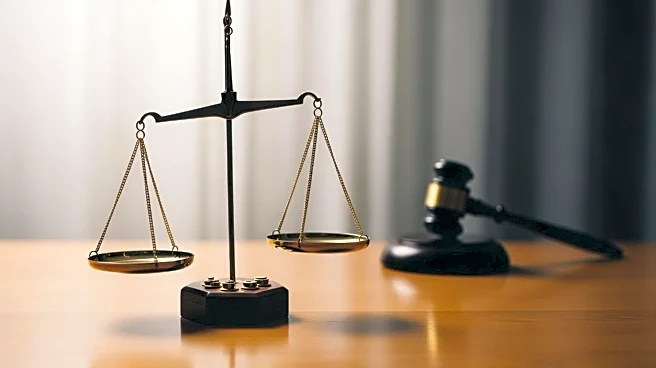What's Happening?
The Supreme Court is reviewing Section 2 of the 1965 Voting Rights Act, which could impact the creation of majority-minority districts designed to prevent the dilution of minority votes. Justice Brett
Kavanaugh is seen as the potential swing vote in this case, which questions whether these districts violate the 14th and 15th Amendments. The court's decision could significantly affect Black representation in Congress and the Democratic Party's ability to maintain seats, as eliminating these districts would require Democrats to achieve landslide victories for a majority.
Why It's Important?
The potential ruling against the Voting Rights Act could lead to a reduction in minority representation in Congress, affecting the political balance and the Democratic Party's strategy in elections. This case highlights ongoing debates about racial equality and the role of race-based remedies in addressing historical injustices. The decision could set a precedent for future cases involving affirmative action and other race-related policies, influencing public policy and civil rights protections across the country.
What's Next?
The Supreme Court's decision is expected to have far-reaching consequences for electoral politics and minority communities. If the court rules against the Voting Rights Act, Democrats may need to reassess their electoral strategies and focus on broader coalition-building efforts. Civil rights groups and political leaders are likely to respond with increased advocacy and potential legal challenges to protect minority voting rights. The ruling could also prompt legislative efforts to address the implications of the court's decision.
Beyond the Headlines
The case underscores the ongoing struggle for racial equality in the U.S. and the legal complexities involved in balancing constitutional protections with efforts to rectify historical discrimination. The court's decision could influence public perceptions of the judiciary's role in civil rights and impact voter engagement and activism among minority communities. It also raises ethical questions about the judiciary's interpretation of racial issues and the potential consequences for social justice initiatives.










